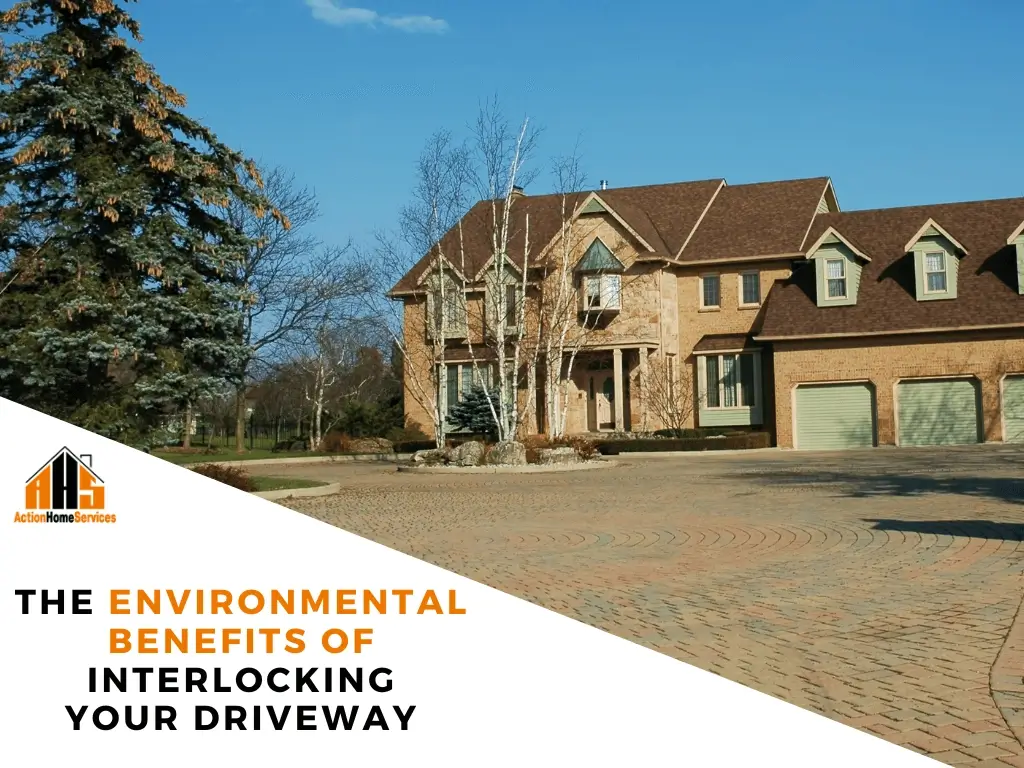
If you’re a homeowner, you may be considering interlocking your driveway as a way to boost your curb appeal. Interlocking is a type of paving that uses small stones or bricks to create a pattern that has become increasingly popular amongst homeowners in recent years. It’s a popular choice for driveways because it’s durable, easy to maintain as well as aesthetically pleasing. In addition to being a practical choice, interlocking your driveway can also have environmental benefits. Here are three ways that interlocking your driveway can help the environment.
Reduces Runoff and Recharge Time
One of the benefits of interlocking your driveway is that it can help to reduce runoff. Runoff is water from rain or melting snow that doesn’t soak into the ground but flows over the surface of the land. When water runs over pavement, it picks up oil, grease and other pollutants that can harm not only the driveway but also the grass and foliage nearby as well. Interlocking paving can help to reduce runoff because the joints between the stones allow water to percolate through to the soil below. This prevents water from running off and carrying pollutants with it. In addition, depending on the type of stone used, interlocking paving can also help to increase recharge rates which helps with how quickly water seeps back into the ground after a storm. Some types of stone have large pores that allow water to quickly seep through, while others have smaller pores that allow water to seep through more slowly.
Lowers Your Carbon Footprint
Another environmental benefit of interlocking your driveway is that it can help you lower your carbon footprint. Carbon dioxide emissions from cars and trucks are a major contributor to climate change. You can help reduce these emissions by using materials that are locally sourced and require less energy to produce and transport. For example, using locally quarried stone will emit less carbon dioxide than using concrete pavers that are produced elsewhere and then shipped long distances.
Improves air quality
In addition to reducing carbon dioxide emissions, interlocking your driveway can also help improve air quality. Concrete and asphalt driveways release pollutants into the air when they are installed and when they degrade over time. By choosing an environmentally friendly option like interlocking pavers, you can help improve air quality in your community.
Interlocking your driveway is a great way to add curb appeal to your home while also helping the environment. If you are interested in reducing runoff and recharge time, lowering your carbon footprint, and improving air quality, then interlocking your driveway is a good choice for you. Are you interested in interlocking your driveway? Get in contact with us today and talk to our experts about what’s best for your home.


